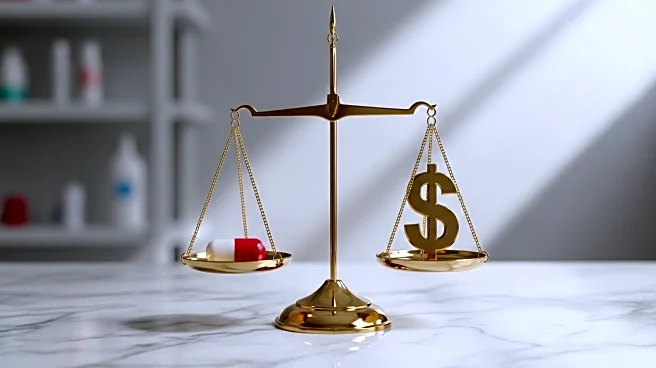What's Happening?
President Trump has announced a new agreement with pharmaceutical giant Pfizer to reduce the cost of some of the most popular medications. The deal promises discounts ranging from 50% to 100% for consumers, aiming to make essential drugs more affordable. This announcement is part of a broader effort by the Trump administration to address high drug prices, a significant issue for many Americans.
Why It's Important?
The agreement with Pfizer could have a substantial impact on the pharmaceutical industry and healthcare costs in the U.S. By lowering drug prices, the deal may increase access to necessary medications for millions of Americans, particularly those who struggle with high healthcare expenses. It also reflects ongoing efforts to reform drug pricing policies, which could influence future negotiations between the government and pharmaceutical companies.
What's Next?
The implementation of the deal will be closely monitored by healthcare providers, insurers, and consumers. There may be further negotiations with other pharmaceutical companies to expand similar pricing agreements. Additionally, policymakers and industry stakeholders will likely assess the long-term effects of this deal on drug pricing and healthcare affordability.
Beyond the Headlines
This development highlights the complex relationship between government policy and the pharmaceutical industry. It raises questions about the sustainability of such pricing agreements and their potential impact on innovation and research within the industry. The deal also underscores the political significance of healthcare reform as a key issue for voters.











